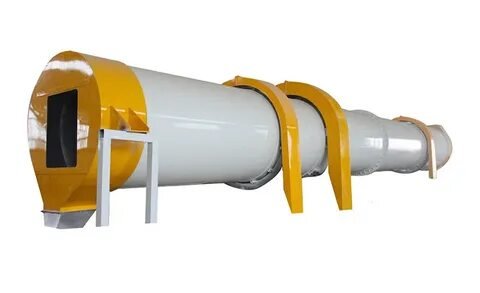Organic-Inorganic Fertilizer Granulation Machinery: Revolutionizing Agriculture
The agricultural industry is constantly evolving, and one of the most significant advancements in recent years is the development of organic-inorganic fertilizer granulation machinery. This innovative equipment combines the benefits of organic and inorganic fertilizers, offering farmers a sustainable and efficient solution to enhance crop yields. In this article, we’ll explore the importance of organic-inorganic fertilizer machinery, its working principles, and how it contributes to modern farming practices.
What is Organic-Inorganic Fertilizer Granulation Machinery?
Organic-inorganic fertilizer granulation machinery is specialized equipment designed to produce high-quality fertilizer granules by blending organic and inorganic materials. Organic fertilizers, such as compost and manure, provide essential nutrients and improve soil structure. Inorganic fertilizers, like NPK (Nitrogen, Phosphorus, Potassium), offer precise nutrient ratios for optimal plant growth.
This machinery combines these two types of fertilizers into uniform granules, ensuring balanced nutrient delivery to crops. The process involves mixing, granulating, drying, cooling, and packaging, making it a comprehensive solution for fertilizer production.
Benefits of Organic-Inorganic Fertilizer Equipment
1. Enhanced Nutrient Efficiency
The combination of organic and inorganic materials ensures a steady release of nutrients. Organic components improve soil health, while inorganic elements provide immediate nourishment to plants.
2. Eco-Friendly Solution
By utilizing organic waste materials, this equipment reduces environmental pollution. It promotes sustainable farming practices by recycling agricultural waste into valuable fertilizers.
3. Cost-Effective Production
Farmers can produce high-quality fertilizers at a lower cost compared to purchasing commercial products. This machinery maximizes resource utilization, reducing overall expenses.
4. Improved Crop Yields
The balanced nutrient composition of organic-inorganic fertilizers leads to healthier plants and higher yields. This is particularly beneficial for farmers aiming to meet increasing food demands.
How Does Organic-Inorganic Fertilizer Granulation Machinery Work?
1. Raw Material Preparation
The process begins with the collection and preparation of raw materials. Organic materials like crop residues, animal manure, and food waste are composted and crushed. Inorganic materials, such as NPK compounds, are measured and mixed in precise ratios.
2. Mixing and Granulation
The prepared materials are fed into a mixer to ensure uniformity. The mixture is then transferred to a granulator, where it is shaped into small, round granules. Common granulation methods include rotary drum granulation, disc granulation, and extrusion granulation.
3. Drying and Cooling
The granules are dried to reduce moisture content, ensuring long-term storage stability. After drying, they are cooled using NPK cooling equipment to prevent clumping and maintain granule integrity.
4. Screening and Packaging
The final step involves screening the granules to remove any oversized or undersized particles. The uniform granules are then packaged and ready for distribution.
Applications of Organic-Inorganic Fertilizer Equipment
1. Large-Scale Farming
This machinery is ideal for large-scale agricultural operations. It enables farmers to produce bulk quantities of fertilizer, meeting the needs of extensive crop fields.
2. Organic Farming
Organic farmers can use this equipment to create certified organic fertilizers. It helps them comply with organic farming standards while improving soil fertility.
3. Waste Management
The machinery plays a crucial role in waste management by converting agricultural and organic waste into valuable fertilizers. This reduces landfill usage and promotes a circular economy.
Choosing the Right Organic-Inorganic Fertilizer Equipment Manufacturer
Selecting a reliable manufacturer is crucial for obtaining high-quality machinery. Here are some factors to consider:
1. Experience and Reputation
Look for manufacturers with a proven track record in the industry. Experienced companies are more likely to provide durable and efficient equipment.
2. Customization Options
Every farming operation has unique needs. Choose a manufacturer that offers customizable solutions to meet specific requirements.
3. After-Sales Support
Ensure the manufacturer provides comprehensive after-sales services, including installation, training, and maintenance support.
4. Certifications and Standards
Opt for equipment that meets international quality and safety standards. This ensures reliability and compliance with environmental regulations.

The Role of NPK Cooling Equipment in Fertilizer Production
NPK cooling equipment is an essential component of organic-inorganic fertilizer granulation machinery. It cools the granules after the drying process, preventing them from sticking together. Proper cooling also enhances the granules’ hardness and durability, ensuring they remain intact during storage and transportation.
Benefits of NPK Cooling Equipment
- Prevents granule degradation
- Improves storage stability
- Enhances fertilizer quality
Future Trends in Organic-Inorganic Fertilizer Machinery
The demand for organic-inorganic fertilizer machinery is expected to grow as farmers increasingly adopt sustainable practices. Future trends include:
1. Automation and Smart Technology
Advanced machinery will incorporate automation and IoT (Internet of Things) for real-time monitoring and control. This will improve efficiency and reduce labor costs.
2. Energy-Efficient Designs
Manufacturers are focusing on developing energy-efficient equipment to minimize environmental impact and operational costs.
3. Integration with Renewable Energy
The use of solar or wind energy to power fertilizer production machinery will further enhance sustainability.
Conclusion
Organic-inorganic fertilizer granulation machinery is revolutionizing the agricultural industry by providing a sustainable and efficient solution for fertilizer production. By combining the benefits of organic and inorganic materials, this equipment enhances soil health, boosts crop yields, and promotes eco-friendly farming practices.
Investing in high-quality organic-inorganic fertilizer equipment from a reputable manufacturer is a smart choice for farmers looking to optimize their operations. With advancements in technology and a growing focus on sustainability, the future of fertilizer production looks promising.
Whether you’re a large-scale farmer or an organic farming enthusiast, organic-inorganic fertilizer granulation machinery can help you achieve your agricultural goals while contributing to a greener planet.





